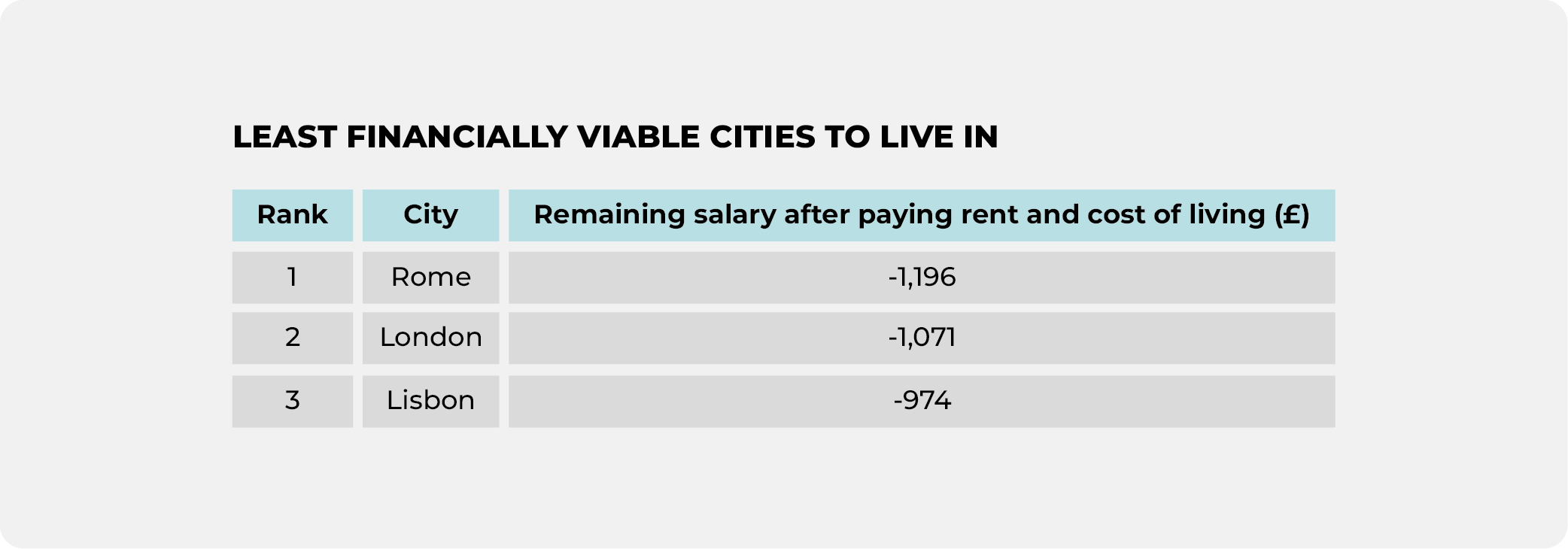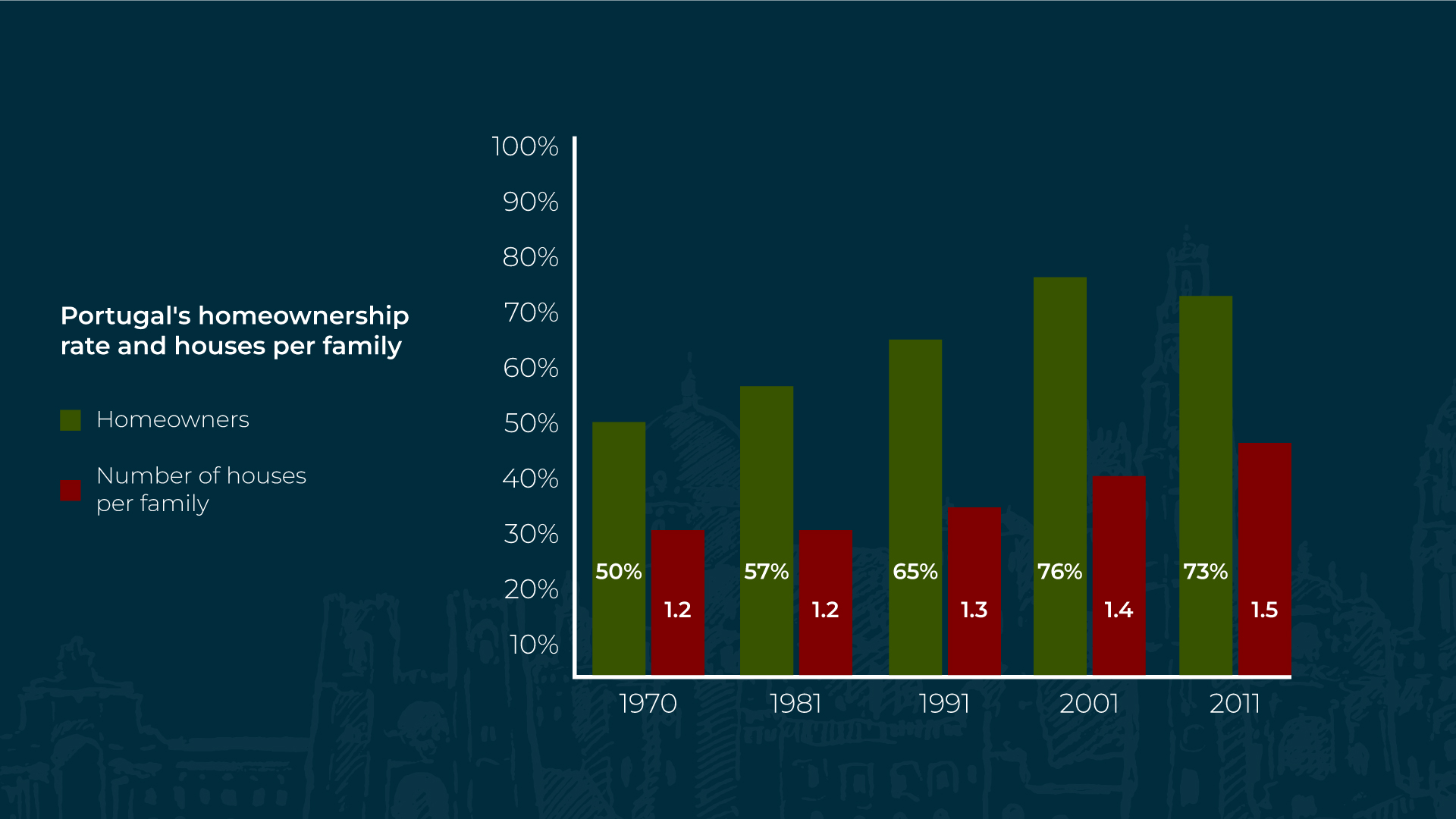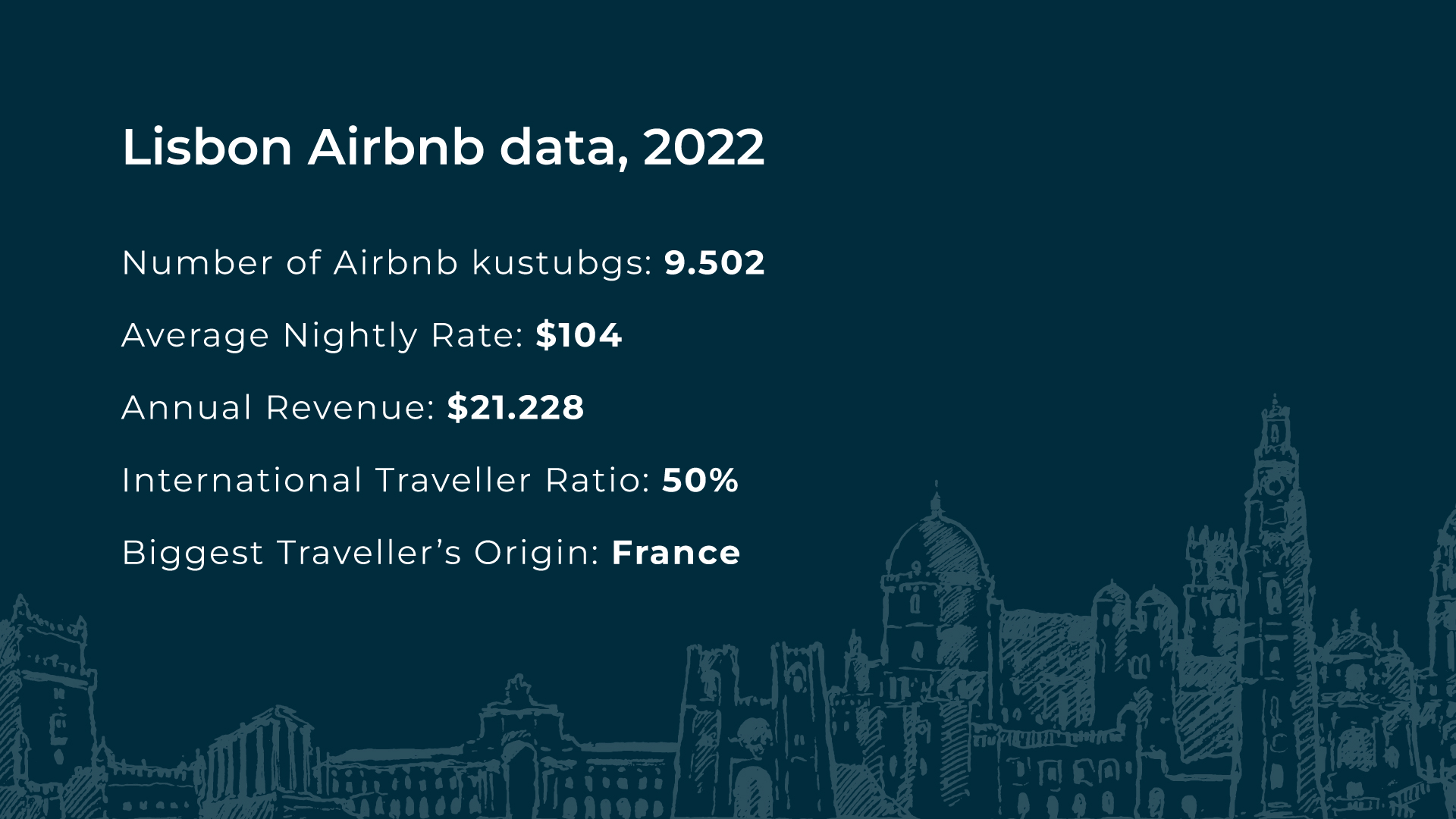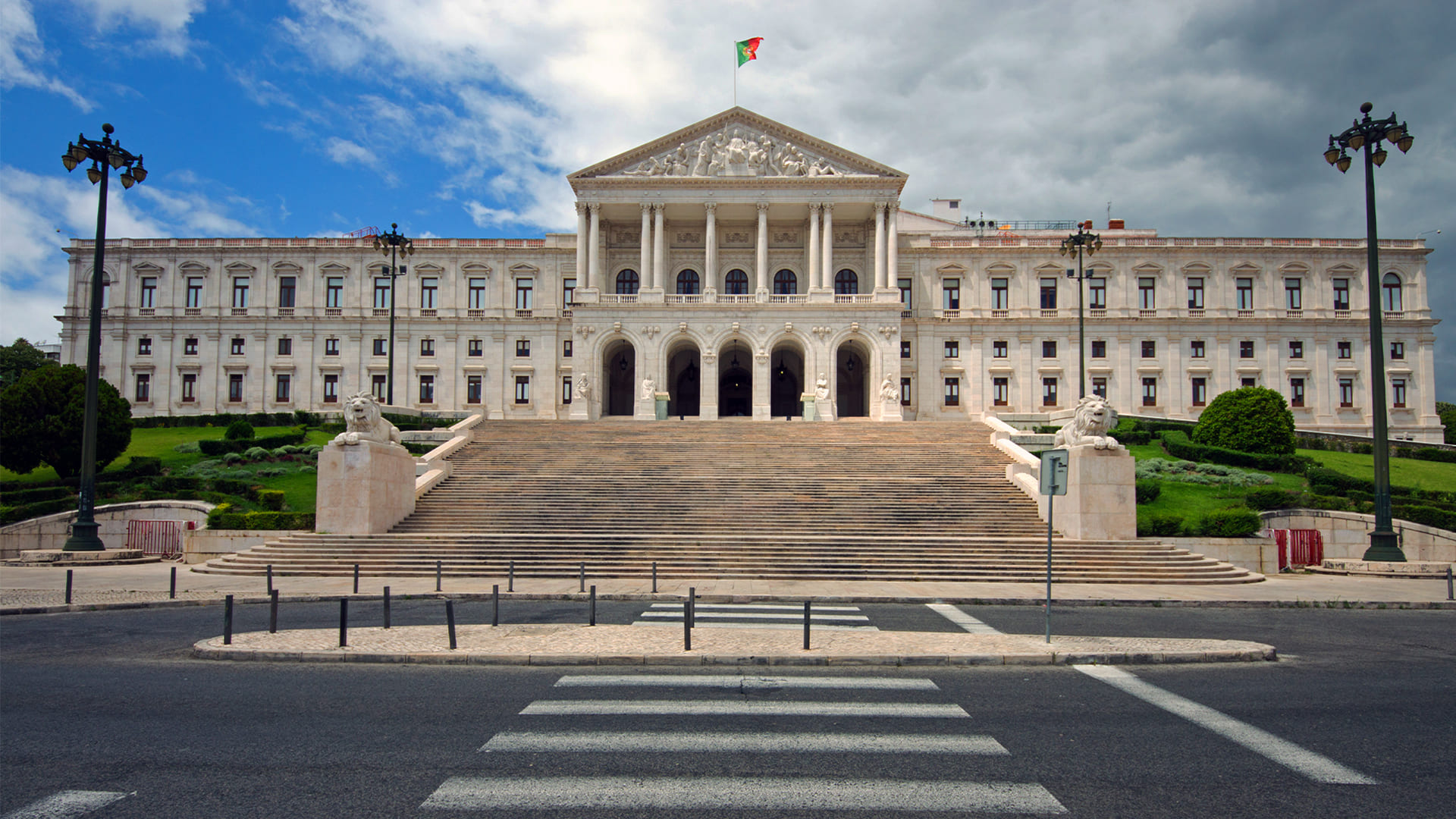 Credit: RossHelen | Envato
Credit: RossHelen | EnvatoMais Habitação: The new law affecting Portugal’s Real Estate
Several proposals are being passed by the government to increase housing availability, including tax breaks and forced rentals
The More Housing program has 5 aims: to increase the supply of real estate for housing purposes, simplify licensing processes, increase the number of houses in the rental market, combat real estate speculation and support families.

Rent Increase Limits
At the beginning of the year, the Portuguese government confirmed that rent increases would be restricted to 2% to minimise the impact of price inflation in the country. This measure was passed in conjunction with tax benefits for landlords to lower the impact this may have on their operations.
In the More Housing package last month, the government introduced further rules to control rents in new contracts. According to the program, "in properties that were already in the rental market in the last five years, the initial rent in the new contracts cannot exceed 2% compared to the previous rent.” If they have not yet been applied, the automatic update coefficients of the previous three years may be added to this value; in 2023 this value was 5.43%.
Tax breaks and simplifying licensing processes
More popular elements of the proposal are the tax breaks for landlords and simplifications for licensing in construction, which has been a demand of Portuguese real estate developers for several years. The latter aims to increase the number of new houses in construction, while the former could increase the amount of old and new stock on the market.Municipal licensing will no longer be required for architectural or specialty projects, and chambers will issue licences based on the terms of responsibility signed by the designer. Municipalities and external entities will also be penalized for non-compliance with the legal licensing deadlines by a new system of late payment interest.
Faster licensing is something everyone likes to hear, according to Pedro Coelho, CEO of Square Asset Management, who noted that this "is a decades-old problem."
Manuel Vasconcelos, COO of Fortera, also wrote that it was a promise “long demanded by all players in the sector that I wait to see how (and when) it will be realized”. As for the penalty for deadline non-compliance, he considers it a “proposal without any feasibility (or intention) of being fulfilled”.

Furthermore, the program provides a reduction in rental property tax based on lease duration. Currently, this tax is set at 28% for contracts of less than two years.
-
When up to five years of a contract, the rate becomes 25%;
-
Between five and ten years, it falls to 15%;
-
Between ten and 20 years old, it goes to 10%;
-
If more than 20 years old, it drops to 5%.
The responsibility for communication of the lease and stamp duty, which currently can only be done by the landlord, can now also be assumed by the tenant.
Other tax breaks that the government has proposed include a 6% VAT rate for construction works or property rehabilitation mostly allocated to the Lease Support Program, as well as:
-
IMT exemption on acquisition for rehabilitation if, after rehabilitation, the fraction is allocated to the Affordable Leasing Program (PAA).
-
Exemption from IMI for three years after the acquisition, construction or rehabilitation for the PAA, extendable for another five years.
The Tax Financial Services Director for PwC in Portugal, Diogo Gonçalves Pires, says that "from a tax perspective, it is undeniable that some important measures have been announced, in particular with regard to the stimulus for affordable rentals (in IMT, IMI, IVA and IRS), but also to long-term rentals (reduction of IRS rates) and incentive to the passage of local accommodation properties to housing rental (exemption for property income).”
Forced renting of unoccupied homes
One of the most controversial aspects of the plan is the forced leasing of empty homes. The first objective is to propose that the owner freely enters into a property lease agreement with the Institute of Housing and Urban Rehabilitation (IHRU), the public entity that promotes the national housing policy. If this does not occur, a formal deadline will be given for using the property. At the end of this period, the State may lease it to the public.
Only property is considered vacant if it has been vacant for one year and so declared by the city council, through the procedure provided for in Decree-Law no. 159/2006. In some situations, the house may be vacant, with no place for this mandatory lease, regardless of whether the owner leases the property to the State (which then sublets it). Exceptions to the rule are the following situations:
-
the homes of emigrants;
-
homes of people displaced for health reasons and professional or training reasons;
-
vacation homes;
-
houses where the owners are providing permanent care as informal caregivers.
Real estate agency Century 21 Portugal has stated that they strongly disagree with this rule, quoting "issues of the right to private property" and emphasising that "this measure removes the confidence of owners and investors in the national real estate market".
The agency supplied its view on a positive replacement for this law. "Negative tax discrimination (IMI, IRS and IRC) and incentives to place this type of property on the market could be considered, for those who do, for example, until the end of 2024, but never the mobilization of vacant private assets through leasing obligatory by the State."
On the other hand, the António Machado of the Association of Lisbon Tenants (AIL) states that "the buildings for housing, for use, that we have built, are not to adorn the streets – for this we have the statues, the gardens, the parks, the fountains."
"If what was built to be used is not being used, it is not contributing either to the economy or to the social function for which it was built."
The end of the Golden Visa
One such method proposed to tackle the issue is the end of the Portuguese Golden Visa, a program introduced over a decade ago after a bailout from the EU and IMF to encourage foreign investment in real estate. Portugal's Immigration and Border Service reported that the program has brought in €6.8 billion, of which 90% went to real estate.
In anticipation of the golden visa changes, foreign investment has been ground to a halt, according to Hugo Ferreira Santos of the Portuguese Association of Real Estate Developers and Investors. “What I have been hearing from international investors is that Portugal is not a credible country,” he said. “It is a country that changes the rules of the game halfway through and a country where foreign investment is not welcome.”
For a full summary of the reasoning behind the Golden Visa changes and the reactions of those in real estate, read GRI Hub’s article On the end of Portugal’s Golden Visa and its effect on the real estate market.
Local Accommodation

The term "local accommodation establishments" refers to those that provide temporary accommodation services, namely to tourists, for a fee, as long as they do not meet all the requirements for being considered tourist resorts. It corresponds to the commercial use of a small property for short-term rentals to tourists, such as Airbnb.
In their proposal, the government made the decision to:
-
Prohibiting new AL licenses with the exception of rural accommodation that can benefit the area by contributing to tourism;
-
Currently existing Local Accommodation licenses will be reassessed in 2030;
-
Remaining AL businesses will see increased tax rates;
-
Those who withdraw homes from the AL until the end of 2024 and place them on the rental market will receive an IRS exemption until 2030.
In reaction to these changes, the Associação do Alojamento Local in Portugal (ALEP) has opined that "all these measures will not only create enormous uncertainty in the face of private investment, but also make it unfeasible", and they must assume that the government would prefer to put an end to AL by 2030.
They also stated that AL "contributes with more than 40% of tourism accommodation nationally " and, for that very reason, the sector "deserves a different treatment".

The mayor of Lisbon, Carlos Moedas, is also a strong voice against Costa's new strategy for dealing with residential tourism. “We cannot kill a sector of the local economy on which more than 2,500 micro and small companies and 5,000 individuals depend, which create wealth and work in the city”, he argued.
Eduardo Vítor Rodrigues, president of the Porto Metropolitan Area and mayor of Vila Nova de Gaia holds a very different perspective. “I would say that it is a fair balance between, on the one hand, tax exemption for landlords who want to put houses on the market or those who have Local Accommodation can turn it into a lease and, on the other hand, what seems to me to be some assertiveness in the way we look at the market."
Read: Insights on Hotel performance in Portugal, as well as Spain and Italy.
Income support and Interest subsidy
On March 16, The Council of Ministers approved measures of extraordinary support for housing that provide subsidies and discounts for those under pressure from the housing situation.
 (elxeneize | Envato)
(elxeneize | Envato)
The purpose of the measure, according to António Costa, is to support families in relation to the ‘effort’ they are making in relation to the ‘effort rate’, whether it is through rent or credit for the purchase of a home, due to the recent interest rate rises.
The Income Support measure is intended for tenants with effort rates - the ratio between the net monthly income of a household and their expenses - above 35%, with an income limit in place. It applies for the next 5 years, in which time the government hopes that the rent market stabilises.
-
Through this measure, it is possible to immediately support families with a maximum amount of 200 euros per month, paid by Social Security.
-
This measure applies retroactively from January 2023.
Meanwhile, the Interest Bonus aims to respond to the reality felt by families due to the rapid variation of interest rates, which have a significant impact on the budget of families.
-
Support will vary depending on the income of the families.
-
All banks offering mortgage loans must have a fixed-rate commercial offer so that people who wish to take out loans or who have variable rates can change to fixed rates.
José Cardoso Botelho of Vanguard Properties has stated that this is "an interesting measure, but of relative effect if the interest rate that is offered is above the possibilities of the clients".
The Future of “More Housing”
The Portuguese Order of Architects (OA) highlighted the “importance of the announced package of measures being worthy of debate and discussion”. The OA expressed doubts about the feasibility and coherence of some of the measures presented, urging a closer examination, although they see some of the announced measures “with good eyes”. Read more on the More Housing program in Portuguese here: "More Housing": what does the Government's new package of measures say?
The remaining measures not approved will only go to the Council of Ministers on March 30th. Currently, they are under much discussion, with ministers and leaders providing their thoughts on which proposals will have the most positive effects and those that could harm both the average individual as well as real estate figures.
To discuss the implications of the program, and discover the possible advantages to be taken, discuss Mais Habitação at Portugal GRI 2023.
Written by Sarah Garnett